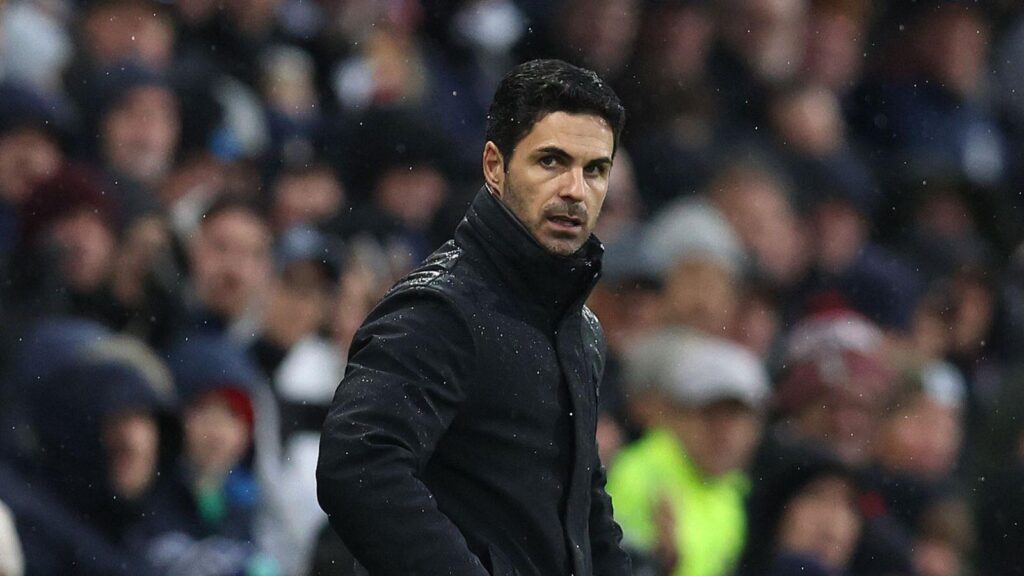
Arsenal stumbled to a frustrating Premier League loss against West Ham United on Saturday afternoon, exposing weaknesses in their attack. Mikel Arteta, grappling with a depleted squad, opted for an unexpected tactical shift. With key forwards sidelined by injuries, he thrust Mikel Merino into the spotlight as the spearhead against a disciplined West Ham side.
Merino, brimming with confidence after netting twice as a substitute against Leicester City last week, stepped onto the Emirates pitch with high expectations. Yet, he faltered under the pressure. Arsenal unleashed 20 shots during the match, but only two tested West Ham’s goalkeeper. This stark statistic highlights their struggle to convert chances. Meanwhile, Martin Odegaard tirelessly orchestrated plays from midfield, delivering four pinpoint passes—more than any teammate. Still, his efforts yielded little reward as the Gunners’ attack fizzled out.
Consequently, Mikel Arteta’s decision to start Merino reshuffled the lineup dramatically. Raheem Sterling, fresh off a lackluster showing against Leicester, found himself relegated to the bench. Initially, Sterling’s loan from Chelsea sparked excitement among Arsenal fans last summer. The 30-year-old winger, boasting over 100 Premier League goals, arrived with a reputation as a proven winner. Arteta, familiar with Sterling from their time together at Manchester City, banked on his experience to ignite the squad instantly. However, that gamble backfired.
Instead, Sterling’s stint in North London unraveled swiftly. In 11 Premier League outings this season, he started just three times. Disappointingly, he failed to score a single goal and managed only one assist. Now, with Bukayo Saka and Gabriel Martinelli nearing their return from injury, Sterling’s prospects dim further. His slide down the depth chart signals a bleak future at Arsenal. Moreover, the club shows no inclination to secure his services beyond the loan term, and Chelsea, his parent club, appears equally uninterested in welcoming him back.
Mikel Arteta Signing Faces Uncertain Future at Arsenal After West Ham Loss:
As a result, Sterling faces an uncertain summer, likely scouring the market for a new team to revive his career. Once hailed as a deadline-day coup, his move to Arsenal now feels like a misstep for all involved. Meanwhile, Arteta must regroup quickly. The West Ham defeat underscores a broader issue: Arsenal’s attack lacks bite without their star forwards. Although Merino struggled, the Spaniard’s versatility still offers hope for a squad desperate to regain momentum.
For now, Arsenal supporters anxiously await the return of their injured quartet—Gabriel Jesus, Martinelli, Saka, and Kai Havertz. Their absence glaringly exposed the team’s reliance on a few key creators. On the flip side, West Ham capitalized fully, with Graham Potter’s side defending stoutly to secure the upset. This loss stings, but it also serves as a wake-up call for Arteta. He must find solutions fast to keep Arsenal’s season on track.
Sterling’s underwhelming cameo in this saga nears its end. His anticipated resurgence never materialized, leaving him on the outskirts of Arteta’s plans. As the Gunners pivot toward recovery, they’ll lean on their returning stars to reignite their campaign. Nevertheless, this latest setback at the Emirates reverberates—a reminder that even bold experiments, like Merino’s forward role, can falter without the right support. Arsenal now turns the page, eager to bounce back, while Sterling braces for his next chapter elsewhere.





